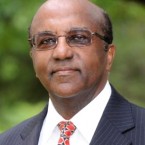Oklahoma-Ethiopia connection explored in new documentary film
 A new documentary film explains how the origins of the $350 million Ethiopian coffee industry are tied to Oklahoma State University, a former school president and a tragic plane crash.
A new documentary film explains how the origins of the $350 million Ethiopian coffee industry are tied to Oklahoma State University, a former school president and a tragic plane crash.
In 1950, former Oklahoma State president Henry Bennett became an assistant secretary of state to head up President Truman’s international technical assistance program. Bennett planted the seeds for what would become a series of schools throughout Ethiopia.
Bennett died in a plane crash in 1951 in Iran while researching expansion of the program, which thrived after his death. Thousands of students learned ranching and agricultural techniques at the schools founded by Oklahoma State professors.
Ethiopian-American Mel Tewahade recently spent time in Stillwater, filming a documentary called “The Point Four.†The film is in three parts, the first of which is to be screened Feb. 2 and 3 at OSU. It tells the story of how these Oklahomans paved the path for monumental changes in Ethiopia’s economy and society.
Secluded country
When agriculture professors and students from Oklahoma State University first set foot in Ethiopia in the early 1950s, they found a country secluded from its neighbors and cut off from the rest of the world.
The team found dense forests, rugged mountains, rivers, lakes, plateaus and valleys that was home to 25 million people, many of whom lived in the mountains to hide from would-be invaders.
Ethiopians spoke and wrote their own language, Amharic, further isolating them from their neighbors.
 The pioneering Oklahomans were on a mission from Oklahoma A&M (now Oklahoma State University): to share their knowledge of agriculture.
The pioneering Oklahomans were on a mission from Oklahoma A&M (now Oklahoma State University): to share their knowledge of agriculture.
“Ethiopia didn’t have modern exposure to anything, really,†Tewahade said. “We forgot about the world and we were forgotten by the world.â€Â
Tewahade said he felt compelled to share the story of OSU’s relationship with Ethiopia for two reasons. One is to express thanks to OSU and America for the outreach that changed the lives of Ethiopians. Second, he didn’t want the story to die. He wants young people to realize that foreign policy can work, though it may take years, or even generations to see its effects.
“It’s an amazing story,†Tewahade said. “I mean, my dad used to tell me how beautiful these people are. They came from Oklahoma, they’re Christian. I didn’t know what Oklahoma was.â€Â
His father, Fitwarari Tewahad Woldyes, was governor of Harer in Ethiopia in the 1960s. The region was directly affected by the technology the Americans brought with them. Read More



